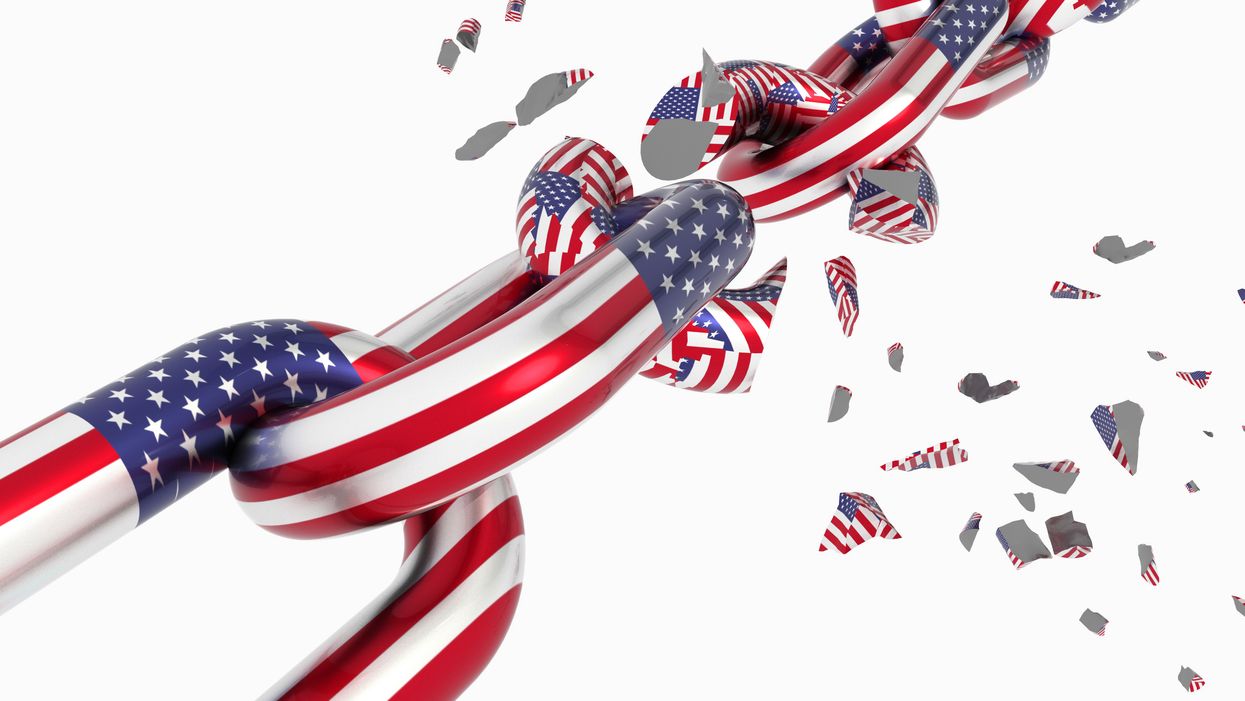Sarat is a professor of jurisprudence and political science at Amherst College.
Responding to its place at the center of the coronavirus pandemic, New York has now joined 13 other states in postponing presidential primaries. Where elections have gone forward, fears of disease exposure have depressed same-day turnout. President Trump is exercising broad emergency powers. Though masked by last week's votes for the economic rescue package, the political system still is awash in hyper-partisanship. Congress is unlikely to check executive branch overreach in a bipartisan way.
Commentators and public officials are rightly concerned about the toll the new coronavirus is taking on democratic processes in the United States.
The problems caused by the current crisis have been layered on top of ongoing voter suppression efforts, partisan gerrymandering and the flood of big money into political campaigns. All are signs that American democracy is in trouble. Thus today it is easy to find headlines asking "Is democracy dying?"
Worries about the fate of the American experiment are as old as the nation itself. In 1814, John Adams captured them when he said, "Democracy never lasts long. It soon wastes, exhausts and murders itself. There never was a democracy yet that did not commit suicide."
Whether American democracy commits suicide has long seemed to depend on the behavior of our public officials. And we should certainly monitor their actions and check their excesses. But our democracy depends more profoundly on the public's attachment to a particular set of beliefs and norms. The test we face is whether we will now adhere to them.
In the early 1960s, political scientists Gabriel Almond and Sidney Verba described the viability and stability of democratic institutions as depending on the maintenance of "democratic civic culture" — where citizens trust one another, have confidence in the officials and processes through which policy decisions are made, participate in the political process, and are willing to compromise.
The United States in the middle of the 20th century seemed to be an exceptional nation, the paradigmatic case of a stable democratic government and a vibrant democratic civic culture.
Indeed, Americans then were optimistic about and attached to the country's political system. Only 75 percent disagreed with the statement "people like me don't have any say in what the government does." In one 1958 poll, 73 percent said they could trust the government to do what is right always or most of the time. And, in 1964, 64 percent said the government was "run for the benefit of all the people."
Today we are much less optimistic about, and attached to, the tenets of democratic governance. This will make it hard to repair the political damage done by the current pandemic.
Indicators of that erosion abound. By 2015, the share of the public agreeing the government was run for the benefit of the people had declined to just 19 percent. The number agreeing they had a say in what the government does had sunk to 50 percent. In 2018 a national poll found only 16 percent of Americans agreed with the statement "My vote matters."
By last year, a Pew survey found just 17 percent "trust the government in Washington to do what is right" all or most of the time.
Americans have minimal faith in all three federal branches of government. In 2018, just 8 percent said that they had a great deal of confidence in the Congress, 19 percent said that of the presidency and 22 percent about the Supreme Court. Asked directly, 40 percent acknowledged they have "lost faith" in democratic government.
There has also been a dramatic generational decline in those saying it's "essential" to live in a democracy: 72 percent born before World War II say so, but only a third of those born since 1980.
Not only do Americans distrust the government, they also do not trust one another — so deeply that 27 percent of Democrats and 36 percent of Republicans see members of the other party as "a threat to the nation's well-being."
Many causes of this erosion of our civic culture are well known. They include the growing wealth gap and the paralysis of our politics. But one significant cause has received less attention: Since the fall of communism Americans simply have taken democracy for granted.
At the end of the Cold War, democracy seemed triumphant. Nations everywhere rushed to embrace it. Some even proclaimed the "end of history" with democracy emerging as the universal value. Democracy became a "cultural truism," a set of beliefs at once widely shared and unquestioned. Citizens no longer had to defend democracy or invest very much energy maintaining it.
This neglect has contributed significantly to the civic culture's ills. Like a person with a weakened immune system, our political system is especially vulnerable to the damage our current public health crisis can inflict.
The coronavirus will surely exacerbate the inequality that has already left too many feeling alienated from their government. Once the crisis has subsided, and no matter what additional harm it inflicts on our political system, we face the hard work of revitalizing our democratic civic culture and rebuilding our democratic infrastructure. Perhaps the pandemic will jolt the nation into doing so.
If democracy in the United States is to avoid the fate Adams foresaw, much needs to be done at the grassroots. Schools, civic groups and the media all have a role to play in restoring democratic civic culture. Citizens need to relearn what democracy entails and why it's a desirable form of government.
Former President Barack Obama got it right when he said: "It falls to each of us to be ... anxious, jealous guardians of our democracy ... because, for all our outward differences, we in fact all share the same proud type, the most important office in a democracy: citizen."




















